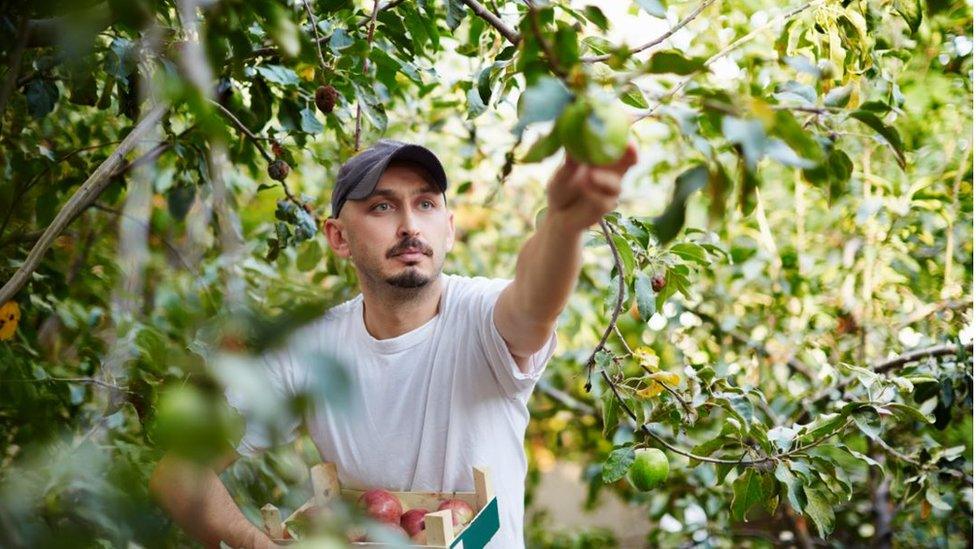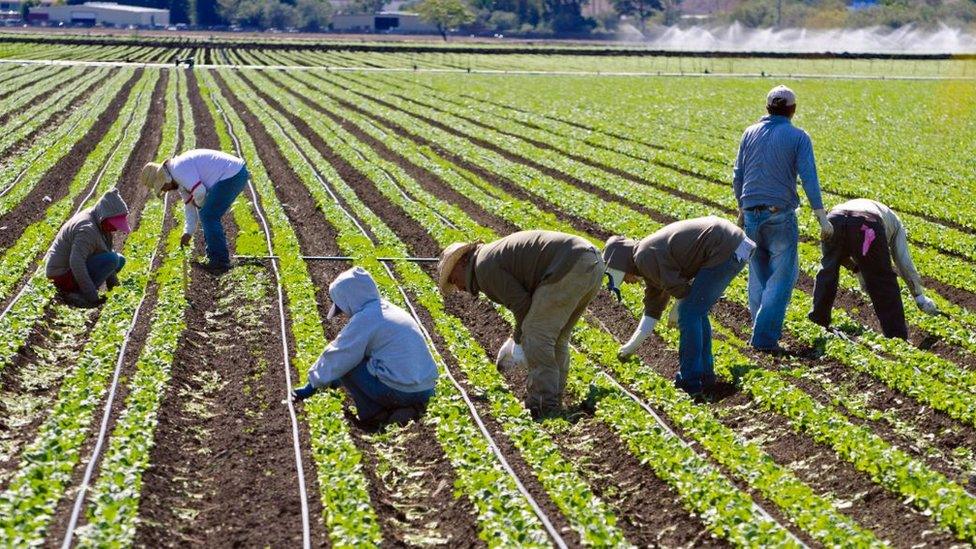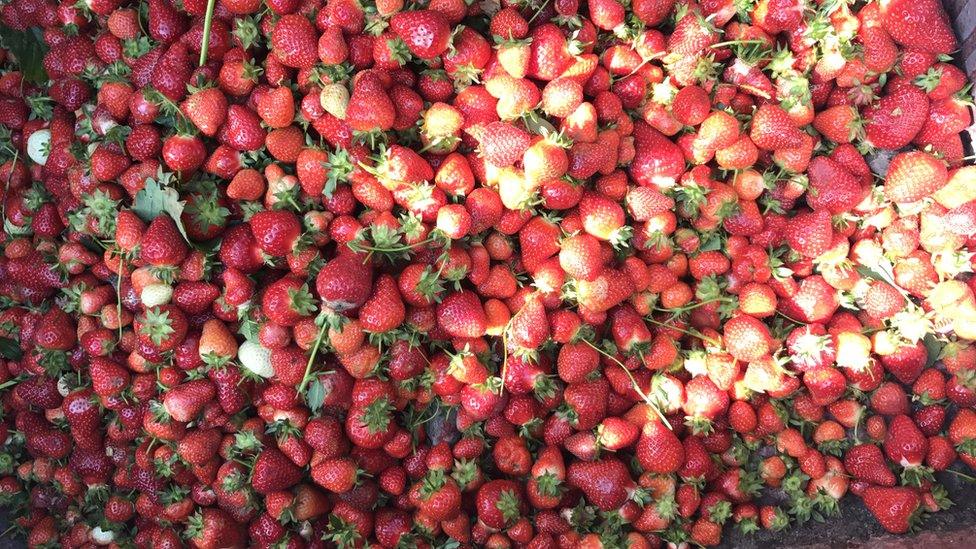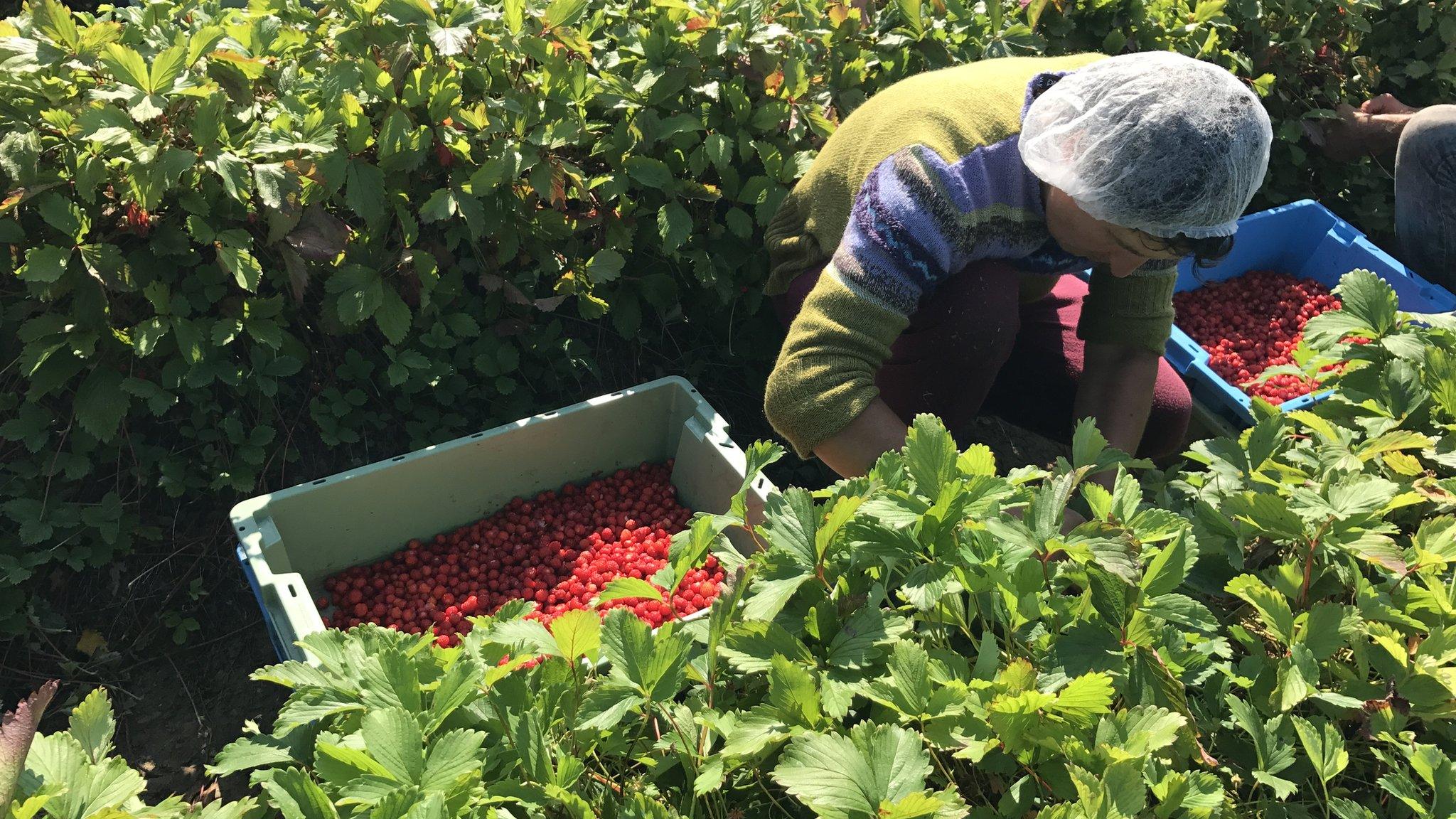Migrant staff shortfall blamed on Brexit worries
- Published

The number of migrant staff dropped by between 15% and 20% last year
Scotland's farming industry fears the effects of Brexit on the numbers of migrant seasonal staff.
New research carried out for the Scottish government showed a decrease of 15% to 20% in workers wanting to come to Scotland in 2017.
Extra efforts were made to recruit in Bulgaria and Romania but agencies were unable to fully meet farmers' needs, with a 10%-15% shortfall in workers.
The report found Brexit was affecting decisions made by migrant staff.
The figures from Scotland's Rural College (SRUC), external on behalf of the Scottish government found only two-fifths of workers were certain they would return to Scotland in 2018.
'Left to rot'
The report also stated that Brexit had "undoubtedly affected the confidence of a proportion of workers" and, therefore, their expectations about coming back for further seasonal work.
The industry has already spoken out about the impact of leaving the European Union on agricultural labour.
The NFU (National Farmers Union) Scotland has warned the availability of workers for seasonal jobs such as fruit and vegetable picking is already waning, with high-value crops left to rot in fields due to a lack of labour.

Farmers reported fruit being left to rot because there were no workers to pick it
The SRUC report said: "Businesses and stakeholders consistently reiterated how access to this workforce is absolutely vital to continuing the current scale of operation of Scotland's soft fruit and field vegetable businesses due to the lack of a reliable, motivated local labour pool.
"Businesses called for strong leadership and improved clarity around communications on Brexit, including definitive statements on labour movement and potential future visa requirements for migrant workers."
Farmers 'struggling'
Rural Economy Secretary Fergus Ewing said: "There is now a wealth of published research outlining the extent of the threat that Brexit poses to farming and our successful food-and-drink sector.
"This latest report by SRUC on behalf of the Scottish government underlines that the interests of rural communities are served best by Scotland remaining in the EU.
"Seasonal migrant labour appear to be positive about working in Scotland but it's concerning that our farmers are already struggling to find adequate labour, with the report finding a 10%-15% shortage last year.
"It is vital that the UK government engages with migrant workers affected by Brexit to ensure that their valid concerns are reflected in ongoing negotiations. They must be reassured that Scotland, and the whole of the UK, remains an open and welcoming place to live and work."

Scotland's soft fruit and field vegetable businesses are feeling threatened by Brexit and its consequences
A UK government spokesman said: "The government places great value on the UK's food and farming industries, both as a crucial component of the UK economy and of the fabric of rural Britain.
"Up until the end of the implementation period in December 2020, employers in the agricultural and food processing sectors will be free to recruit EU citizens to fill vacancies and those arriving to work will be able to stay in the UK afterwards. Their rights will be protected in the same way as EU citizens already living here."
- Published22 June 2017
